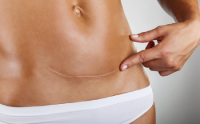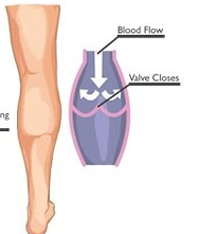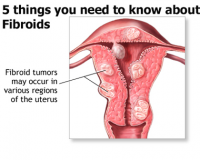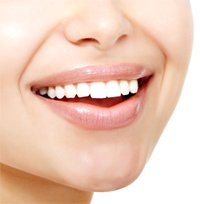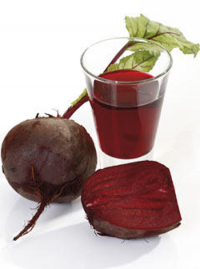Benefits of Deep Tissue Massage Once in a while when you feel sluggish and you go through certain muscular discomfort, consider getting yourself a Deep Tissue Massage. This massage targets any specific muscular problems with the use of long slow strokes and deep pressure and releases any muscle tensions and has numerous benefits · It removes toxins which build by due to any blockage of nutrients and oxygen in your muscle tissue. · It loosens the hardened muscles · Helps in improved blood circulation which leads to overall body health. · Removes any sluggishness which accumulates because of lack of exercise or adequate rest for the body. · Deep breathing while getting the massage done is important as the Oxygenation of the muscles will help the massage do its work and ease discomfort. How it is done: You will need to undress and the therapist will put a large towel covering you .The elbows, fingers, and ceramic, wooden, or glass tools may be used for optimal penetration of the muscle. The speed of the strokes will be slower than a regular massage and the duration will be about an hour and a half, depending on the therapist and how much you pay. You should tell the therapist as to where your trouble spots are like your neck, lower back or any specific area which is painful. The therapist will apply pressure there for extra relief and hold it for a few minutes. Post Massage: After the massage it is good to soak in a tub of warm/hot water of with Epsom salts. Epsom salt draws the toxins out into the water and you will feel rested after the long massage and relax and get a complete benefit of the Deep Tissue Massage.
Recovery Tips after a C- Section A C –section delivery of a baby has become a norm of the day and new mothers experience happiness at the birth of a child and also the post delivery discomfort after the surgery. Presenting a few tips which might help you go through this brief phase in the hospital comfortably and you go back home with your baby in tow joyfully. 1. You will be encouraged to get out of bed even on the day of surgery – to walk. (First take the support of the nurse and get down. You may feel drowsy at first because of the medication and anesthesia. So at first get the blood flow by wiggling your feet, rotating your ankles, and moving and stretching your legs. 2. You will have a vaginal discharge called lochia, which consists of blood, bacteria, and sloughed-off tissue from the lining of your uterus. For the first few days, this discharge will be bright red. Remember to change your pads and keep the vaginal area clean. 3. You will shown how to cough or do deep breathing exercises to expand your lungs and clear them of any accumulated fluid, which is particularly important if you've had general anesthesia. This will reduce the chance of getting pneumonia. 4. Start off by eating a light diet if you feel like it – within six to eight hours after your surgery. You will also need to increase your fluid intake as this is necessary for the breast milk production and to cleanse you internal system. 5. Gas tends to build up because the intestines are sluggish after surgery, leaving you feel bloated. Drinking fluids and moving around as much as you can is the only solution. If you feel constipated take a purgative after checking with your doctor. 6. Urinating frequently is necessary as a full bladder makes it harder for the uterus to stay contracted and increases pressure on the wound. 7. Coming to the scar you may feel numb and sore at the incision. The doctor will clean and dress the scar daily till you are in the hospital. Another tip for the wound to heal is to clean it and use a blow drier to dry the place .It works wonders. Just see to that you don’t put too much heat there and blow from a distance. 8. To reduce pressure on the abdominal area use your hands or a pillow to support your incision when you cough, sneeze, or laugh.
Make your own Vapour rub Monsoons have set in and it won’t be long before the rains start pouring in …And the next frightening things for moms are the cold and coughs that come with it. As we were thinking as to what would be a useful homemade medicinal recipe we can offer for these coughs and colds which we can make and store at home, we chanced upon this Homemade vapor rub which is so easy to make and use. Especially for those who like to use this on a regular basis. Check out this DIY vapor rub recipe. Ingredients · 1/2 cup olive oil/ coconut oil · 2 level tablespoons of beeswax –If you don’t get bees wax you can use Petroleum jelly as well · 20 drops of Eucalyptus Oil · 20 drops Peppermint Oil · 10 drops Rosemary Oil Instructions 1. Melt the olive/coconut oil & beeswax in a double boiler, stirring with a wooden spoon until melted. 2. Turn off the flame and let it cool. 3. Add in the essential oils - drop by drop (keep stirring until all have been added). 4. Pour into a small glass container. Seal it and allow it to cool. 5. If you want more you can double up the quantity of the ingredients and make it. 6. This can be applied when you have cold and congestion and this can be used for babies also, only remember to dilute with 2 big tablespoons of oil and use it. It can also be added in hot water and the vapor inhaled to clear any nasal congestion.
After Effects of Excess Botox Queen of controversies as the public loves to call her has transformed herself from an item girl to a politician ( 3 months of fame ) and now as a producer of a Marathi film. Now we leave those apart and focus on her new face which looks like it had an over dose of Botox . Not denying that she had gone under the knife when it came to her silicone implants , nose job ,liposuction to shaping the jaw line, cheeks etc, she has been there, done that! The surgeries might have gone all right but the effects so many of them has resulted in given her a very not-so-real-looking appeal which even good makeup cannot hide. The recent photograph shows the effect of an overdose of botox on her face. We have seen many actresses like Shilpa Shetty, Koel Puri and even our very own Samantha and Shruthi Haasan getting a nip and tuck here and there.But one or two is OK, but if this becomes a habit it could lead to other implications on the health of a person. According to medical experts and cosmetologists the side effects of Botox can be devastating and result in serious facial damage. This could include: Face muscles will shrink over time. You will end up with loose sagging skin Your current wrinkles will look worse when the botox wears off Because of this you will need to go for further round of cosmetic procedures. This will cost you time, money, anxiety and pain in the long run If done for too many times could lead to disfigurement and paralaysis of the muscles
Tips to relieve Varicose Vein pains For those of you who have varicose veins know that r this painful inflammation of the veins can be extremely painful. Herbal and allopathic treatments, dietary changes and lifestyle modifications are an excellent way of relieving the symptoms of aching, heaviness, and swelling in the legs and ankles. Try these few tips to help you alleviate the pain and ease the swellings. Try to include foods like fresh fruits, including aamla and citrus family fruits, making sure to nibble on the inside of the rinds, also whole grains, especially, wheat and millet. Try eating more garlic, onion, ginger, and pineapple, which contains bromelain, an enzyme that promotes break-up of fibrin which disperses build-up of a protein that makes skin near varicose veins hard and lumpy, Take alternate hot and cold baths. This is believed to stimulate circulation in the legs. Regular exercise stimulates circulation, improves muscle tone, and helps prevent varicosities. Walking and swimming are considered excellent therapy, as are gentle leg-muscle stretches Start your morning with a brisk walk or finish your day with a swim or bicycle ride. Certain yogaasanas such as the Sarvangaasana, Halaasana, and Pawanmuktaasana series promote circulation and the drainage of blood from the legs. Regular massage can significantly alleviate discomfort associated with varicose veins. Never massage directly on varicose veins. Avoid use of any tight clothing, especially if it constricts the waist area, and avoid use of high heel footwear, which stops normal muscle contraction in the lower leg, affecting circulation. Raise the foot of the bed by up to six inches (place hard pillow under the feet). This is not uncomfortable and helps gravity to ease back pressure on the veins at night. Avoid standing for lengthy periods. If your job requires you to be on your feet constantly, stretch and exercise your legs as often as possible to increase circulation and reduce pressure build-up. Use elasticized support hose if your job entails excessive standing, or when pregnant, or if you are overweight. If you like to sit with your legs crossed, cross them at the ankles rather than the knees for better circulation.
Anti aging Hormones can make you smarter In Greek mythology, the duration of life is controlled by the three daughters of Zeus and Themis: Klotho (Clotho) who combs and spins the thread of life, Lachesis who determines the length of life by measuring the threads length, and Athropos who cuts the string causing a life to end. In science, a Japanese group, which was exploring aging mechanisms, conferred the name of Klotho to a gene that they discovered in 1997. This anti aging harmone Klotho has been linked to making people's brains work better and can actually make you smarter . A new study in Cell Reports journal has found that animals and people tend to live longer if they have more Klotho in their bodies. The study examined more than 700 people between the ages of 52 and 85; around 1 in 5 people had a form of the Klotho gene in their bodies that produced the Klotho hormone. People who had lots of Klotho experienced just as much cognitive decline as people who didn't have the hormone, but they performed better cognitively overall during their lifespan. They scored higher on cognitive tests and showed better learning and memory skills than those without the hormone. In essence, they were smarter than those who didn't have the Klotho benefit. If researchers can figure out how to distill and treat with Klotho, this could have a great beneficial application for everyone -- it may help treat diseases like Alzheimers, even if it can't actually stop the disease. Treatment is still a long ways a way, but researchers are hopeful. "The beauty of this study," said Molly Wagster of the National Institute of Aging, "is that the finding gives us another place to look, another path to take as we try to determine targets for the development of drugs." [NPR]
Women prone to Stress more at Home than Work According to a new study in a journal Social Science and Medicine it is said that women get stressed out when they stay at home for longer periods than their life at workplaces. Based on the saliva samples which tracked 122 participants, researchers found that their stress levels -- signified by a spike in the hormone Cortisol -- were significantly higher while at home than when they were at their offices. This was higher among people who were low-income earners, and people who had no children. What does it mean? Well, in part, it says something about the way that we value, and feel valued, at home and at our jobs. Researchers believe that our work lives don't stress us out as much because we derive a sense of satisfaction from doing things that are ascribed value in our culture. In other words, where working outside the home has a definite financial and professional value, working and doing tasks in the home doesn't. And that may be part of what stresses us out so much. The common feeling that we have that we are more respected and appreciated at work and not by our own family members triggers depression among women. While handling husband, children and in some countries where the joint family system is still prevalent like India and other Asian countries , women go through extreme stress in carrying out their household duties and rush to work. This causes a lot of stress to keep things intact at home and then rush to work. Whether its culture or family as the reason, it becomes extremely important to control stress levels and try and keep a healthy balance at home and at work for healthy and happy life.
Early morning Heel pain ? Don’t neglect Plantar fasciitis A very common problem for women above thirty is the pain in the heel which starts first thing in the morning when you put your feet down. This symptom is termed as Plantar fasciitis and there are many reasons attributed to this pain.One of them being flat footedness, overweight, standing for too long , running for too long and the planta facis ligament in the foot which gets inflamed causing this pain. Once you start noticing this pain don’t neglect it and visit your nearest orthopedic and start treatment as suggested by the doctor. · Rest your feet. Limit or, if possible, stop daily activities that are causing your heel pain. Try to avoid running or walking on hard surfaces, such as concrete. · To reduce inflammation and relieve pain, put ice packs regularly on your heel. · Wear shoes with good shock absorption and the right arch support for your foot. Athletic shoes or shoes with a well-cushioned sole are usually good choices. · Try heel cups or shoe inserts to help cushion your heel. You can buy these at many athletic shoe stores. Use them in both shoes, even if only one foot hurts. · Put on your shoes as soon as you get out of bed. Going barefoot or wearing slippers may make your pain worse. · Do simple exercises such as toe stretches , calf stretches , and towel stretches several times a day, especially when you first get up in the morning. These can help your ligament become more flexible and strengthen the muscles that support your arch. (For towel stretches, you pull on both ends of a rolled towel that you place under the ball of your foot.) · Roll a frozen water bottle under the arch. Stretch first then roll out the arch for 10 minutes; you don’t want to stretch the tendon when it’s ice cold. The plantar tendon needs to be supported and strengthened using good arch soles which will push the arches and if you are overweight its best to get into a weight loss program and shed the extra weight which puts pressure on the heels.
What your nails tell about you Our finger nails represent or are a part of our health indicators. When in pink of health our nails also have light pinkish to white tinge on them which reflect good health. They also have the ability to tell if you've got emphysema or other lung disorders, arthritis, iron deficiencies or kidney and liver problems. It turns out the shape of your nails, along with your nail consistency and the lines and indentations in your nails say a lot about your overall physical health, according to Dr. Amy Derick, a clinical instructor of dermatology at Northwestern University. For example, people that suffer from lung problem often suffer from "clubbed" nails, wherein the fingertips become rounder and the shape of the nail becomes more curved. If you're noticing horizontal lines in your nails -- what are known as Beau's lines -- you may be more stressed than usual. They're a common sign of physical stress and have been seen among people who've gone through chemotherapy, or experienced undernourishment. Kidney and liver problems can make half of your nails go white, and if you're noticing that your nail is lifting out of your nail bed, it could be a sign of kidney or thyroid problems. Just our two cents to keep you posted on healthy nails and BTW, don’t forget to get that once a month manicure to keep your nails nice and shiny.
బి.పి. తగ్గాలా? ఇదిగో చిట్కా! రక్తపోటు కంట్రోల్లో లేకపోతే ఎన్నోరకాల అనారోగ్య సమస్యలు చుట్టుముడతాయి. శారీరక వ్యాయామంతోపాటు, టైమ్కి మందులు వేసుకోవడం, ప్రశాంతంగా వుండటం, రక్తపోటుని అందుపులో వుంచే మార్గాలు. అయితే మానసిక ప్రశాంతతకి మెడిటేషన్, యోగా వంటివే కాక సముద్రపు అలల సవ్వడి వినడం కూడా సహాయపడుతుందని ఈమధ్య ఒక అధ్యయనంలో తేలింది. సముద్రపు అలలు ఒకదానితో ఒకటి పోటీపడుతూ చేసే అటజడి, అవి చేసే సవ్వడి వినడానికి ఎంతో హాయిగా వుంటుంది. ఆ శబ్దం వింటుంటే మనసు ప్రశాంతంగా మారిపోతుంది. ఇది సముద్రం దగ్గర అలవాటుగా సమయాన్ని గడిపే అందరికీ అనుభవమే. అయితే ఇలా సముద్ర అలల సవ్వడి వినేవారిలో రక్తపోటు తగ్గడం శాస్త్రవేత్తలు గమనించారు. వారానికి ఓ మూడుసార్లయినా ఓ పావుగంట సముద్రపు ఒడ్డున కూర్చుని ఆ అలల సవ్వడి వింటేచాలు.. నెమ్మదిగా రక్తపోటు అదుపులోకి వచ్చేస్తుందట. మరి దగ్గరలో సముద్రం లేకపోతే ఎలా? నిపుణులు దీనికీ పరిష్కారం చెబుతున్నారు. ఆ అలల సవ్వడిని రికార్డు చేసి విన్నా చాలుట. రోజూ ఓ పావుగంట ఈ సముద్రపు అలల సవ్వడిని వింటూ వుంటే చాలు రక్తపోటు తగ్గడం ఖాయం అంటున్నారు ‘అమెరికన్ హార్ట్ అసోసియేషన్’ వారు. అలల శబ్దాలు మెదడులోని ఆల్ఫా తరంగాల్ని నియంత్రిస్తాయని, దానివల్ల నిశ్శబ్ద వాతావరణం ఏర్పడి, ఏకాగ్రత కుదురుతుందని చెబుతున్నారు ఆ పరిశోధకులు. చిన్న చిట్కా పెద్ద అనారోగ్యాల నుంచి కాపాడుతుందంటే పాటించకుండా వుంటామా చెప్పండి.. అర్జెంటుగా ఇంటర్నెట్లోంచి ఆ అలల సవ్వడులను డౌన్లోడ్ చేసేయండి మరి.. - రమ
Start exercising to avoid heart diseases Once you reach your 30s the warning bells start ringing. If it isn’t that nagging pain in your knee or irritating PMS or the hot flushes in your body to the palpitation in your heart ,for women who over 30 physical inactivity may be the greatest single contributor to heart disease risk. Researchers followed 32,154 Australian women in three age groups: those born in 1973-1978, 1946-1951 and 1921-1926. They used a mathematical formula called population attributable risk, or P.A.R., that indicates the percentage reduction in disease that would be achieved in a given population if exposure to a specific risk were eliminated. The study was published online last week in The British Journal of Sports Medicine. They found that the importance of the most common risk factors for heart disease — smoking, high blood pressure, physical inactivity and excess weight — varies with age. In women under age 30, for example, the greatest contributor to heart disease is smoking. Stopping smoking would reduce the risk of heart disease in this group twice as effectively as reducing high body mass index. But for women in their 70s, being physically active would lower the P.A.R. almost three times as much as smoking cessation, and significantly more than reducing blood pressure or achieving a healthy body weight. “It’s a heads-up for women in their 30s, 40s, 50s to get moving,” said the lead author, Wendy J. Brown, a professor of health at the University of Queensland. “And if they are moving, to move more.” So get into action and start working towards a healthy goal for better health!
5 Things you need to know about Fibroids Dr. Elizabeth A. Stewart, a professor of obstetrics and gynecology at the Mayo Clinic, is an internationally renowned expert on fibroids and is on the board of the nonprofit Fibroid Foundation, an education and advocacy group and has done extensive research on uterine fibroids.“Women have been reluctant to talk too much about fibroids, ” Dr. Steward said. “It is a sensitive topic. No one likes to get into graphic details of how her life is made miserable by menstrual bleeding.” The disease traditionally has gotten short shrift because of this social reticence, she says, and because it affects women of all races. Dr. Stewart says every women with the problem should know these five things. 1. Fibroids won’t kill you. They are not malignant, and it is exceedingly rare for fibroid cells to show any signs of becoming a precursor to cancer. Even though some fibroids can grow to be huge — the size of a grapefruit or football — they remain benign tumors. 2. Not all fibroids need to be treated. Fibroids are very common, and many women are able to conceive, bear healthy children and live out their lives free of symptoms. 3. Fibroids generally shrink on their own during menopause, and symptoms tend to subside then too. If you can make it to menopause without surgery or other treatment for your fibroids, the odds are you’ll never need surgery. 4. Fibroids tend to be more prevalent, and more severe, among older women. They develop earlier, grow bigger and cause worse symptoms as you grow older. Not all Fibroids require treatment. 5. Fibroids are a common cause of heavy menstrual bleeding. If you have long menstrual periods with heavy bleeding, see your doctor to rule out fibroids. Source:“Uterine Fibroids: The Complete Guide” (Johns Hopkins University Press, 2007)
How much of Iron should you take in Pregnancy? The practice of getting your hemoglobin levels checked is a regular feature when you are pregnant. Your Gynecologist tests your blood for anemia at your first prenatal appointment. One of these tests (hematocrit) measures the percentage of red blood cells in your plasma. The other (hemoglobin) measures the number of grams of hemoglobin in your blood. If your test indicates that you have iron-deficiency anemia, your Gynecologist will prescribe an iron supplement. The dose will depend on the severity of your anemia, but it's likely to be 60 to 120 mg or more of elemental iron daily, in addition to the iron in your prenatal supplement. Follow your practitioner's instructions – never take more iron than prescribed. Note that these doses refer to the amount of elemental iron, or pure iron, in a supplement. Some labels list the amount of ferrous sulfate (a kind of iron salt) instead of or in addition to the amount of elemental iron. A supplement that contains 325 mg of ferrous sulfate, the most commonly used iron supplement, will give you about 60 mg of elemental iron. Others use ferrous gluconate, 300 mg of which yields about 34 mg of elemental iron, or ferrous fumarate, which contains about 106 mg of elemental iron in a 325 mg tablet. In order to absorb as much of the iron as possible, it's best to take your iron pills on an empty stomach. After that have water or orange juice (the vitamin C helps with absorption), but not with milk (calcium interferes with absorption). Coffee and tea should be avoided completely as this also stalls the absorption.. Within a week or so after starting treatment, you should be producing a lot of new red blood cells and your hemoglobin level will begin to rise. It usually takes just a couple of months for the anemia to resolve, but your Gynecologist will likely advise you to continue taking iron supplements for several more months so you can replenish your iron stores and you could get a break after you have your baby.
Yoga For Computer Users Yoga For Computer Users: Watch Dr C.V.Rao of Kapila Maharshi Yoga Kendram show us various exercises for people who are on the Computer for long hours. A must watch for all those ladies who are in the field of IT and who use the computer regularly. He shows simple Yoga exercises which can be done at your workplace without any discomfort or need for space. He shows various breathing exercises along with Yogaasanas for keeping the body fit , alert and free from any symptoms related to excessive use of the Mouse and watching the Computer for long.
Flash those 32 Pearly Whites We have seen actress Madhuri Dixit flash her toothy smile in a popular tooth paste advertisement where she talks about getting white teeth.As we age so do our teeth. This is quite visible when the discoloration sets in and they tend to turn yellow. This also makes us look older than we actually are and for this there are a number of products available to whiten your teeth. These tooth whiteners contain bleaching agents like peroxide which help whiten the teeth. Before you bleach for the first time A first-timer should always consult her dentist before trying any tooth whitener, even an over-the-counter product, because not all teeth react to whitening the same way. If you have any of these types of dental implants like caps, crowns, and veneers, don't take to lightening because peroxide can't penetrate them. Stains caused by antibiotics, like tetracycline, are also tricky, because they can occur in the layers inside the tooth, which brighteners can't reach. Your dentist will be able to advise you about the best method for you. How whiteners work All bleaching methods use peroxide--whether in gel, strip, or liquid form--to dissolve surface stains to whiten teeth, explains Debra Glassman, D.D.S., a cosmetic dentist in New York City. Teeth surfaces are made up of thousands of tiny dentinal tubules--hollow structures stacked horizontally, like thin straws. They're extremely porous and absorb pigments from food and drink. (Anything that can stain a white T-shirt can discolor your teeth, Glassman says.) Peroxide bubbles into the tubules and lightens those pigments. So if have decided to go for whitening your teeth , go with the above added awareness and what's more is that a Columbia University Study found that women with healthier-looking teeth earn more than those with less sparkling grins. Something to motivate you to get those flashy pearls of white!
Handling Sunstroke The zooming temperatures and heat wave is a common feature for any summer irrespective of country, state or place. There are times when you cannot avoid travelling in the sun which could result in heat strokes or Sunstroke's as they are commonly known .This can be a life threatening condition if not treated properly or on time. Check out these tips to follow when you have a sun stroke. First and foremost get into a shade when you start feeling dizzy . Remove your socks and other heavy clothing as the heat remains trapped inside . Don’t drink water immediately .Give yourself some time and start taking water or other fluids gradually. Avoid caffeinated beverages. Place ice packs at the neck, armpits, and groin. You can also rub the limbs with ice cubes. Massage the arms and legs gently. This will allow some cool blood to return to the brain as well as the core of the body. Take a cool shower or apply a wet towel all over your body. If it is not possible to have a bath, at least apply water to your forehead, neck, face and arms After applying a cold pack lie down with your head in an elevated position. Replenish the body of its salts by drinking electrolyte powder or glucose or by drinking a sports drink especially formulated with electrolytes or eating something salty. The regular ORT Oral Re-hydration Treatment where you mix salt and sugar in a glass of water is also an easy substitute. If the situation is serious where you end up having vomiting and diarrhea please visits the nearest physician or hospital. To prevent sunstroke, please avoid unnecessary travel in the Sun, wear a cap, hat /scarf and shades. Wear cool comfortable cottons and avoid heavy clothing and most importantly stay O2 hydrated with a bottle in your bag !
Checking your Sugar levels- frequency The American Diabetes Association recommends testing your blood sugar at least three times a day if you need multiple daily insulin injections. But for the rest of those with type 2 diabetes, testing frequency should be "dictated by the particular needs and goals of the patients," the ADA says. That means that frequent testing is clearly necessarily for some people with type 2 diabetes and all type 1 diabetics who take multiple daily insulin injections also need to monitor blood sugar frequently. Some studies suggest that frequent monitoring is not always helpful for people with type 2 diabetes. But that research is still being debated. Your doctor or diabetes educator can help you determine how often and when you should be testing. The other factors that needs to be taken into consideration when you need to check your sugar levels are : Medication: Some classes of oral drugs can cause hypoglycemia or low blood sugar, so you may need to test more often. Changes: If you've just been diagnosed with diabetes, started on a new medication, added a new type of food, or recently changed some other factor (for example, you have gained or lost weight, or are exercising more or less often), then you should test more frequently.
Beetroot Benefits Including a few beetroot in your everyday diet can actually help boost your weight loss and improve your health. Beta cyanin is a powerful antioxidant present in the root can help remove toxins from your liver, bloodstream and also help to remove fatty deposits from your bloodstream, which can lower your cholesterol and therefore your risk of heart disease. ->Research suggests that daily consumption of either 250ml beetroot juice or 1-2 cooked beetroots, around 100g, could dramatically lower blood pressure levels, making it a bit of a wonder food for high blood pressure patients.It also bostteh hemoglobin content in your body. ->Beetroot is also rich in folic acid, which is essential for healthy tissue growth and cell repair. Folic acid is absolutely crucial to the development of a baby’s spinal cord, which makes beetroot an excellent food to eat during pregnancy. It also contains iron, which is a great nutrient to combat fatigue. ->Beetroot can help to reduce cholesterol levels, too – it contains soluble fibre, and research has suggested that soluble fibre can reduce cholesterol levels. It also contains flavonoids and carotenoids, which are known to reduce the levels of bad cholesterol whilst improving the levels of good cholesterol. ->It has a very low glycaemic load, which means that when you consume it, it is very slowly converted into energy, which means that it won’t overload your bloodstream with sugars. This prevents blood sugar highs and therefore blood sugar lows, which can lead to cravings of sugary and fatty foods. ->Beetroot is also rich in insoluble fibre, which ensures a healthy digestive tract and a healthy bowel, which reduces your risk of bowel cancer. Eating insoluble fibre can help to boost your metabolism and it can also help you to lose weight as the food that you consume helps to fill you up, but as you cannot digest it, you don’t take in as many calories from it. And finally Beetroot is also an excellent food for weight loss as it is very low in calories, containing around 38 calories per 100g of beetroot, along with just 0.1g of fat.


